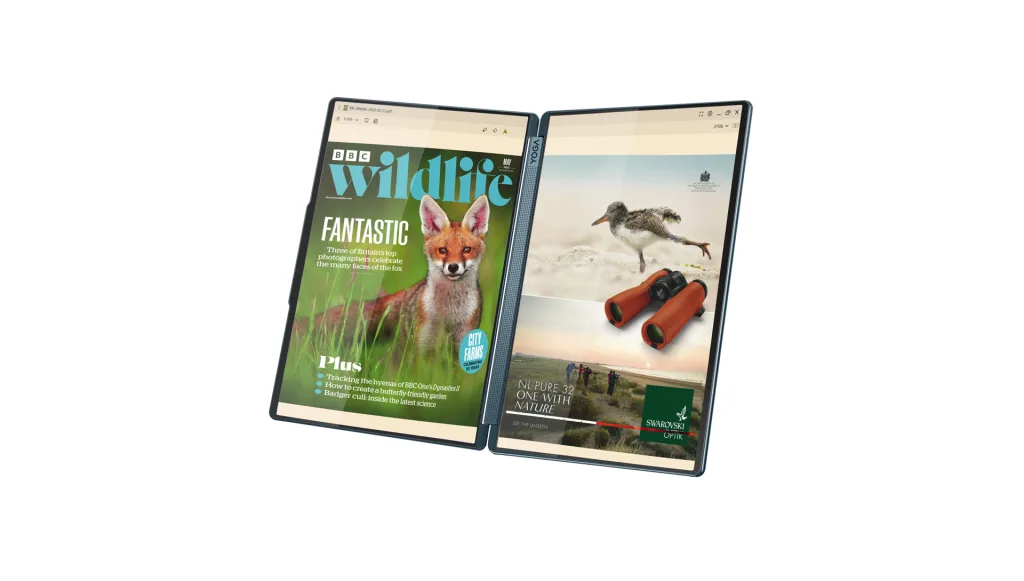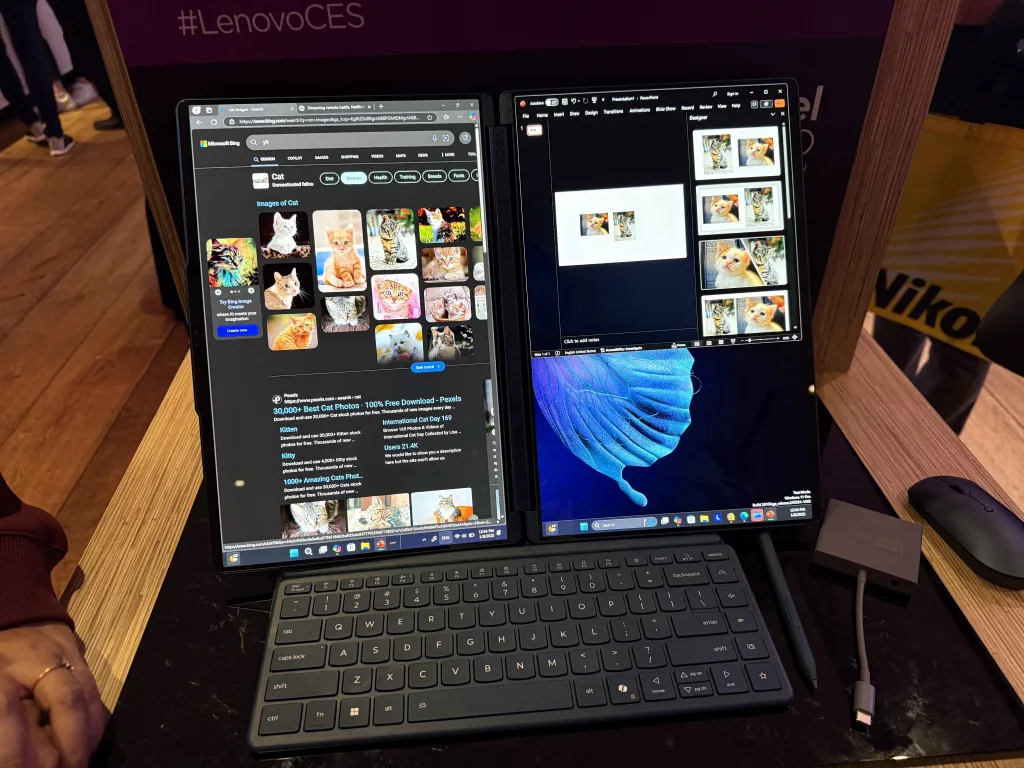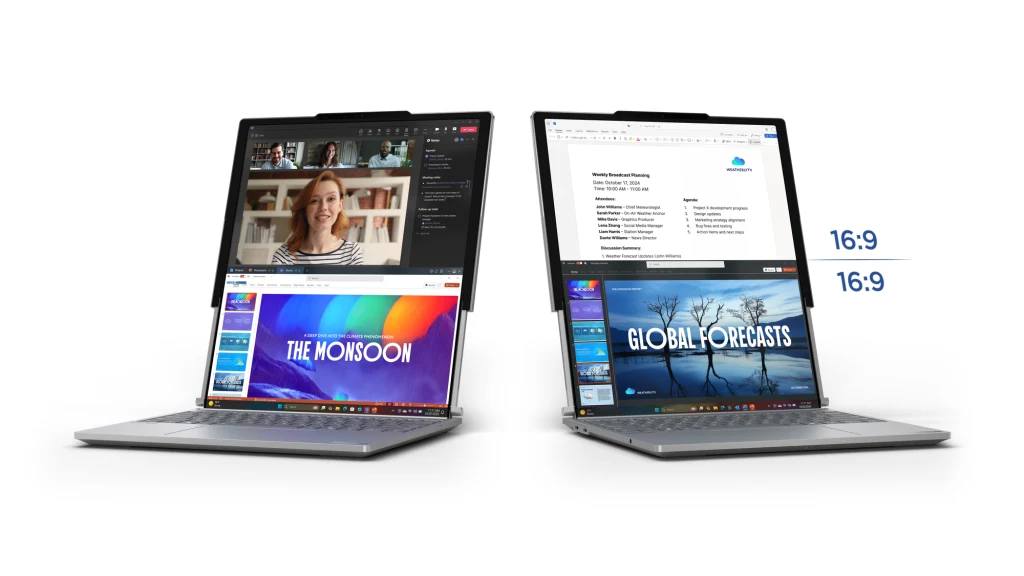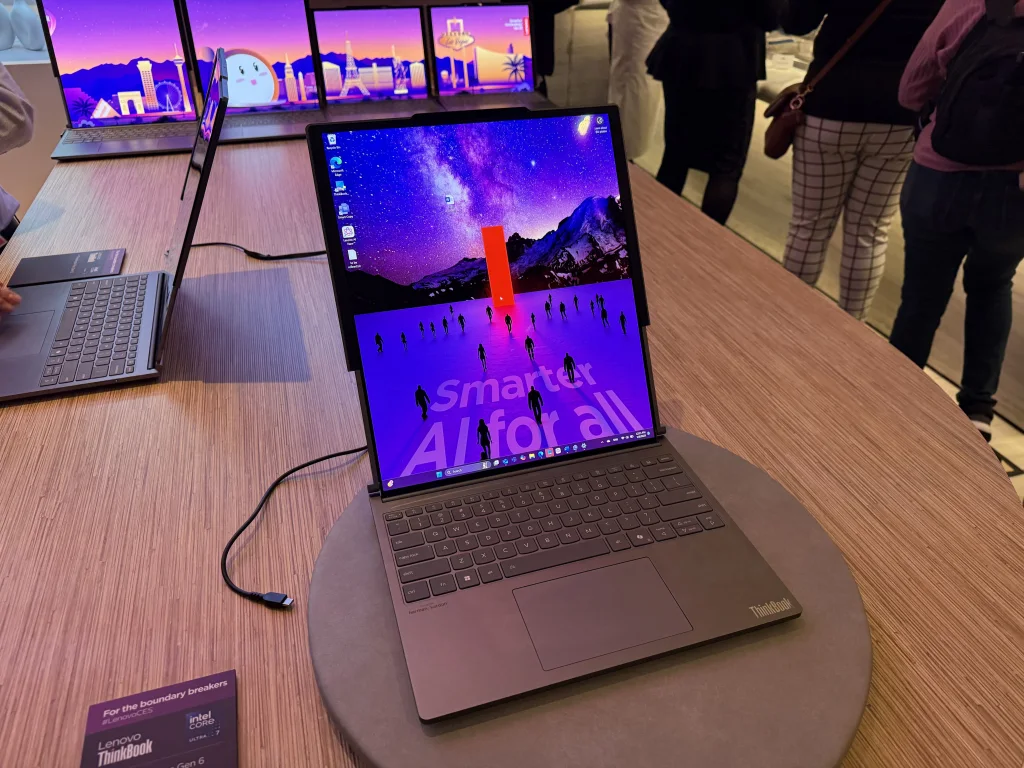Of all the laptops that debut during the CES trade show every January, Lenovo’s tend to be the most interesting.
For years now, the company has indulged in public experimentation, launching laptops with foldable displays, dual screens, and secondary e-ink surfaces. This time around, Lenovo brought out the industry’s first laptop with a rollable display, which expands from a normal-looking 14 inches to an extra-tall 16.7 inches with the push of a button.
A lot of companies bring wild concepts to CES, but Lenovo actually ships them, even when it knows they won’t be commercial hits. (The rollable laptop, called the ThinkBook Plus Gen 6, will arrive in June for $3,500.) What does the world’s largest PC vendor have to gain by putting ultraexpensive, experimental products on the market? I asked the president of Lenovo’s Intelligent Devices Group to find out.

Learning experience
Even when Lenovo knows its weirder laptop ideas won’t be instant hits, Rossi says they help the company develop intellectual property that it can use in the future, even in different contexts.
As an example, he points to Lenovo’s ThinkPad X1 Fold laptop and its foldable Motorola Razr phone, which both arrived in 2020. Rossi says Lenovo’s work on laptop’s hinge design helped inform future Razr models, which became easier to manufacture at a scale. Lenovo has now shipped one million Razr phones, and Rossi says it’s now the most popular clamshell-style foldable phone in the U.S. (presumably beating Samsung’s Z Flip line).
“Some of the learning from the laptop is here,” Rossi says, gesturing to his Razr. “Some of the learning from here is in the laptop.”

Lenovo released a second-generation X1 Fold in 2022, responding to feedback that users wanted a larger screen and more powerful processor. At CES, Lenovo also announced a new version of its Yoga Book 9i, which has two separate screens instead one big foldable display but borrows many of the same concepts. The company is still evaluating when to launch a third foldable model.
“If we realize that we’re failing, and this direction is not promising . . . we’ll redirect the budget to something else. But that’s innovation,” he says.

Big trade-offs
In the meantime, Lenovo’s taking a detour into rollable screens with the ThinkBook Plus Gen 6. Whereas Lenovo’s foldable laptops contort into various positions with help from a detachable kickstand and wireless keyboard, the ThinkBook Plus Gen 6 works more like a regular laptop—albeit with a screen that stretches out to approximate a pair of vertically stacked monitors.
“Two years ago we brought a proof-of-concept to MWC, and nobody believed we could manufacture it. Now it’s here for sale,” Rossi says.

Like a lot of other Lenovo experiments, this one will come with some major compromises beyond just the $3,500 price tag. At 3.73 pounds and 0.78 inches thick, it’s considerably bulkier than a typical laptop, and Lenovo’s window management software seemed a bit crude in my brief hands-on experience. Early buyers will also have to worry about the durability of a first-of-its kind display technology.
Perhaps for those reasons, Rossi isn’t sure whether ThinkBook Plus Gen 6 will be successful, but he believes rollables have a path to popularity. When I ask why Lenovo doesn’t just experiment behind closed doors—like Apple famously does—he says the company sees value in bringing these kinds of early versions to market.
“If you’re keeping it in the lab, you don’t test the real market response,” he says.
Accedi per aggiungere un commento
Altri post in questo gruppo

IShowSpeed and Jynxzi are teaming up to host a $100,000 Fortnite tournament, bringing together 100 top creators for what’s shaping up to be the biggest celebrity Fortnite match to date.

Mark Zuckerberg said on Monday that Meta Platforms would spend hundreds of billions of dollars to build several massive

Meta may not currently lead the race for AI superintelligence, but it&

Southern small-town drama has made its way to TikTok. If you’re not familiar

A preliminary finding into last month’s Air India

In May of 1995, the video game industry hosted its first major trade show. Electronic Entertainment Expo (E3) was designed to shine a spotlight on games, and every major player wanted to stand in

Robinhood cofounder and CEO Vlad Tenev channeled Hollywood glamour last month in Cannes at an extravagantly produced event unveiling of the trading platform’s newest products, including a tokenize
